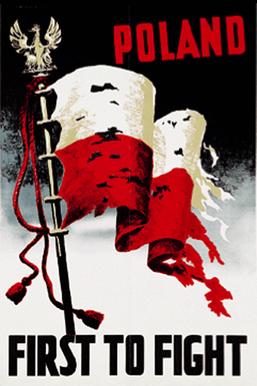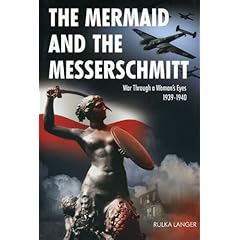 Not all of them want to talk about what happened. Some Poles don't want to remember the killings, brutality, deportation, enslavement, deprivation, and suffering that many of them felt would never end. My mother was one of these Poles. If I asked her about what those years under the Nazis were like, she would wave me away and tell me simply, "If they give you bread, you eat it. If they beat you, you run away."
Not all of them want to talk about what happened. Some Poles don't want to remember the killings, brutality, deportation, enslavement, deprivation, and suffering that many of them felt would never end. My mother was one of these Poles. If I asked her about what those years under the Nazis were like, she would wave me away and tell me simply, "If they give you bread, you eat it. If they beat you, you run away."I respect the silence of those like my mother who wouldn't talk about those years. I'm sure she felt that she was protecting my sister Donna and me from the kind of sorrow few can bear.
Other Poles, however, were like my dad. He was a man who felt that it was his duty to let people know about the terrible things that were done. He didn't want people to forget the evil that came down upon the Poles.
Justine Jablonska, a graduate student in the Medill School of Journalism at Northwestern University, recently published a series of reports about four Poles who, like my father, feel that they must keep the memories of what happened alive.
These reports are gathered together under the title "Four stories: The nurse, the child, the Resistance fighter and the Home Army soldier."
In this series of articles, Ms. Jablonska describes what happened to a 19-year old nurse who was deported to Siberia, a 7-year old boy who witnessed the collapse of Warsaw, a resistance fighter who was captured and sent to Auschwitz-Birkenau and Buchenwald, and a 16-year old who fought to free Poland during the Warsaw Uprising in 1944.
The stories these Poles tell are personal stories, human stories, that remind us finally that courage and hope, honor and faith, re-awaken in every generation and help to see us through.
You can read Ms. Jablonska's entire article online by clicking here.
__________________
 Justine Jablonska is a graduate student at the Medill School of Journalism at Northwestern University. She is specializing in urban issues and global journalism. In her previous corporate life, she worked as an editor, writer, and project manager for various companies, including Skidmore, Owings & Merrill LLP, NASD, Humana, and Creative Powers Inc.
Justine Jablonska is a graduate student at the Medill School of Journalism at Northwestern University. She is specializing in urban issues and global journalism. In her previous corporate life, she worked as an editor, writer, and project manager for various companies, including Skidmore, Owings & Merrill LLP, NASD, Humana, and Creative Powers Inc.Her article about a veteran who fought in the Uprising as a very, very young boy is also online.














